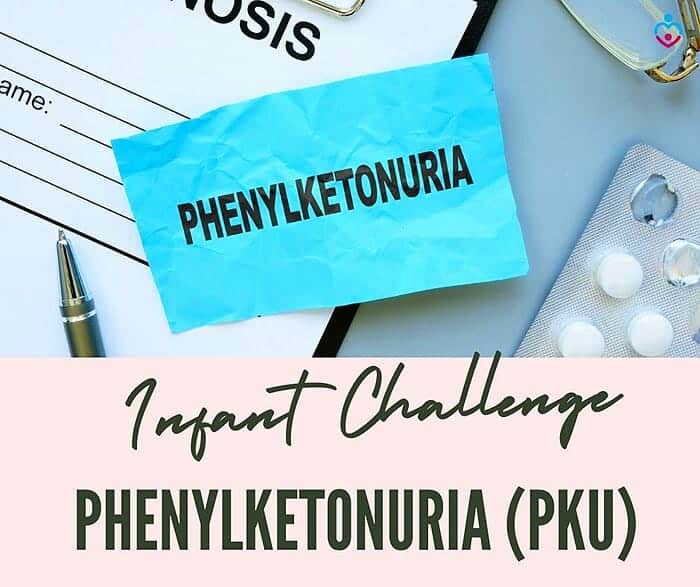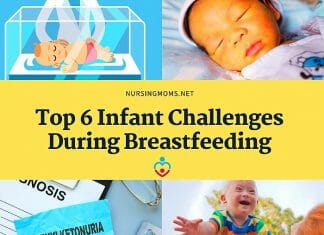
PKU is known as Phenylketonuria, and it is a condition that stops your body from breaking down phenylalanine, an essential amino acid. The amino acids are important for both babies and adults as they build the needed protein in the body.
If your baby has PKU and doesn’t receive proper treatment, the phenylalanine will get in the blood in large quantities and general health conditions.
This condition is relatively rare among babies, with only 1 in 10,000 to 15,000 babies born with this disorder.
Table of Contents
Symptoms of PKU
If your baby has PKU, your doctor will inform you when they pass their birth checkup. However, it is essential to screen your baby for PKU to offer them the appropriate lifestyle according to their condition.
Some doctors recommend testing your baby in the first 24 hours after birth and repeating the test after two weeks. Then, according to the results of these tests, your doctor will diagnose and assign your baby the treatment they need.

What causes PKU?
After years of intense research, the medical field concluded that PKU is an inherited condition. This means that if the baby’s parents have this condition, the child also has an increased chance of developing it. However, this is not always the case.
- Even if none of the parents has this condition, the combination of their genes might lead to it as the baby is developing during pregnancy.
- Also, if your baby has only one PKU gene from one parent, but that gene is not met with a similar one from the other parent, they will carry the PKU condition but have no concerning symptoms.

Breastfeeding a baby that has PKU condition
The breastmilk will come with high phenylalanine levels if the mother has the PKU condition, but the baby doesn’t. But even if this is the case, your baby can’t be infected with PKU through the breastmilk as it will not get in their bloodstream.
- Doctors recommend combining breastfeeding meals with formula meals for babies with PKU while the nursing mother doesn’t have this condition. This combination leads to a lower level of phenylalanine as long as you choose an appropriate formula.
- Your lactation consultant and the doctor who monitors your baby will suggest you a list of baby formulas with low levels of phenylalanine.
- The level of phenylalanine that should be maintained through diet is calculated by the pediatrician according to the needs of each baby individually.
- If both the baby and the mother have PKU, strict monitoring is required for both of them. In this case, the nursing mother should keep the phenylalanine under control through an appropriate diet.

How is PKU treated?
PKU is mainly treated through an adjusted diet. Babies who have this condition will need to eat foods that are low in phenylalanine.
- If your baby is breastfed exclusively, your diet will need to be adjusted, so the breastmilk they receive is appropriate for their condition.
- Babies with PKU should avoid foods like eggs, meat, poultry, milk, cheese, fish, nuts, beans, and foods with aspartame.
- Keep in mind that each baby is different, and their meals will be different as well. If your child has PKU, their dietary plan will be applicable for their entire life.
- As far as medicine goes, some doctors might prescribe patients Kuvan which is sapropterin dihydrochloride, for mild cases of PKU. This drug still implies a unique meal plan, but the restrictions will be less strict.

Also, regular checkups and monitoring of the phenylalanine are needed to keep this condition under control for patients of any age.











